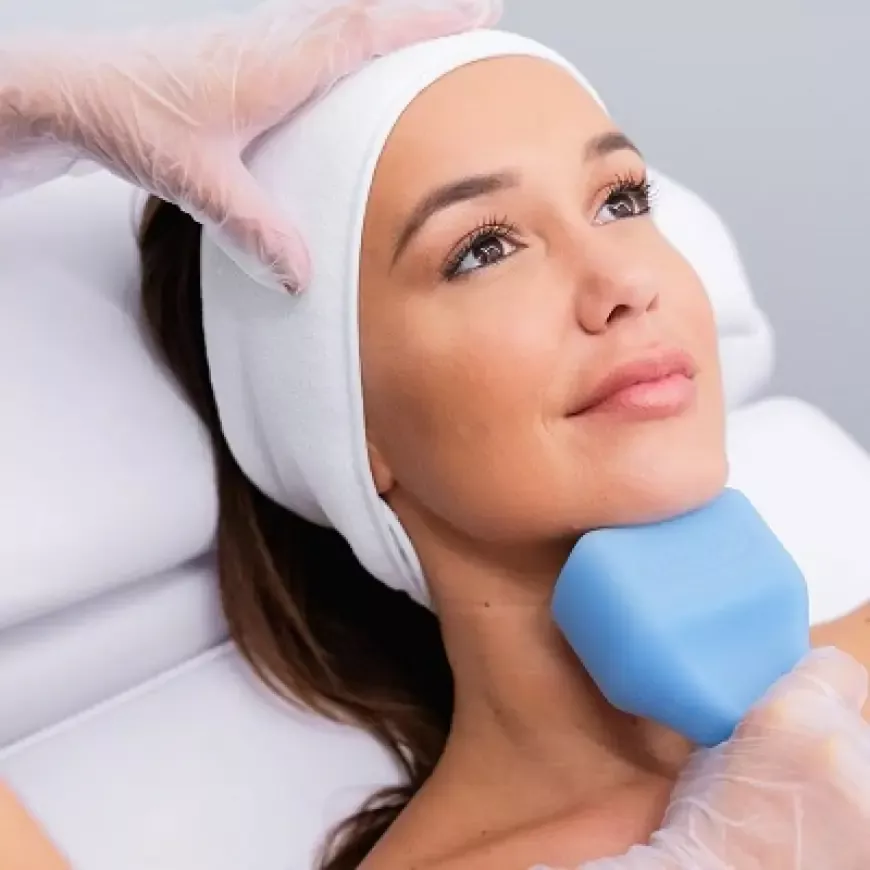Is Double Chin Liposuction Safe for Sensitive Skin Types?
Double Chin Liposuction in Dubai, Abu Dhabi & Sharjah carried out at Enfield Royal takes 1-2 hours under local anesthesia. Chin jowls and neck are sculpted

Double chin liposuction is a popular cosmetic procedure designed to eliminate excess fat beneath the chin, creating a more defined jawline. While many individuals consider this treatment to enhance their facial contours, those with sensitive skin may wonder whether the procedure is safe for them. Sensitive skin can react adversely to surgical interventions, making it essential to understand potential risks, benefits, and alternative options before undergoing treatment.
Understanding Double Chin Liposuction:
Double Chin Liposuction is a minimally invasive surgical procedure that removes fat deposits from the submental area. The process typically involves:
-
Local or general anesthesia to numb the area.
-
Small incisions under the chin or behind the ears.
-
Insertion of a cannula (a thin tube) to break up and suction out fat.
-
Post-procedure care, including compression bandages and recovery monitoring.
This treatment offers long-lasting results, but its safety for individuals with sensitive skin requires deeper examination.
Challenges of Sensitive Skin in Cosmetic Procedures:
People with sensitive skin often experience heightened reactions to medical treatments. Common concerns include:
-
Increased redness and irritation
-
Higher risk of scarring and hyperpigmentation
-
Potential allergic reactions to anesthesia or medications
-
Prolonged healing time
Since double chin liposuction involves incisions and potential swelling, individuals with sensitive skin should take extra precautions before proceeding.
Risks of Double Chin Liposuction for Sensitive Skin Types:
While double chin liposuction is generally safe, those with sensitive skin may face certain risks, including:
Skin Irritation and Inflammation:
Sensitive skin is more prone to redness and irritation post-surgery. The use of anesthesia and surgical manipulation can trigger excessive inflammation, which might take longer to subside compared to normal skin types.
Hyperpigmentation and Scarring:
Individuals with sensitive skin, particularly those with a predisposition to hyperpigmentation, may develop dark spots or scars at the incision sites. Improper healing can also lead to raised scars (keloids) or discoloration.
Delayed Healing and Infection Risk:
Sensitive skin may take longer to heal, increasing the chances of infection. Post-surgical care, including proper wound cleaning and avoiding harsh skincare products, is crucial to minimize complications.
Allergic Reactions to Anesthesia or Medication:
Some individuals with sensitive skin may react negatively to anesthesia, antibiotics, or pain relievers prescribed during recovery. Conducting a patch test before the procedure can help prevent adverse effects.
Precautions to Take Before the Procedure:
If you have sensitive skin and are considering double chin liposuction, the following steps can help ensure a safer experience:
Consult a Board-Certified Surgeon:
Choose a surgeon with experience in treating patients with sensitive skin. They can assess your skin type, suggest personalized pre-procedure care, and recommend the safest techniques.
Undergo a Skin Sensitivity Test:
Before the procedure, ask your surgeon to test your reaction to anesthesia, antiseptics, and post-operative medications to prevent potential allergic responses.
Follow a Pre-Treatment Skincare Routine:
Preparing your skin before surgery can enhance recovery. Your dermatologist or surgeon may suggest:
-
Using gentle, fragrance-free cleansers and moisturizers.
-
Avoiding exfoliants and strong active ingredients like retinoids.
-
Staying hydrated and consuming a nutrient-rich diet.
Post-Procedure Care for Sensitive Skin:
Taking the right steps after surgery can minimize complications and promote smooth healing.
Use Gentle Skincare Products:
Opt for hypoallergenic, fragrance-free products to cleanse and hydrate the treated area. Avoid harsh chemicals or exfoliants that can trigger irritation.
Apply Cold Compresses for Swelling:
Swelling and redness are common after liposuction. A cold compress wrapped in a soft cloth can help reduce inflammation without aggravating sensitive skin.
Follow Your Surgeon’s Aftercare Instructions:
Strictly adhering to your surgeon’s guidance, including wearing a compression bandage, keeping the incision sites clean, and avoiding sun exposure, can aid healing.
Monitor for Unusual Reactions:
If you notice excessive swelling, pain, pus, or prolonged discoloration, consult your doctor immediately to prevent further complications.
Alternative Treatments for Sensitive Skin:
If Double Chin Liposuction in Dubai seems too risky for your skin type, consider non-surgical alternatives that offer fat reduction with minimal irritation.
CoolSculpting (Cryolipolysis):
CoolSculpting freezes and eliminates fat cells without incisions. It is a good option for individuals with sensitive skin as it reduces the risk of scarring and inflammation.
Kybella Injections:
Kybella, an FDA-approved injectable treatment, dissolves fat under the chin using deoxycholic acid. However, it may cause temporary swelling, which should be considered for sensitive skin.
Radiofrequency and Ultrasound Fat Reduction:
Non-invasive treatments like Ultherapy and radiofrequency contouring can tighten skin and reduce fat deposits with minimal discomfort and no downtime.
Conclusion:
Double chin liposuction can be safe for sensitive skin types if proper precautions are taken before, during, and after the procedure. Consulting a skilled surgeon, conducting patch tests, and following a gentle skincare routine can help minimize risks. However, non-surgical alternatives like CoolSculpting and Kybella may be safer options for those prone to irritation and prolonged healing. Ultimately, the decision should be based on an individual’s skin sensitivity, risk tolerance, and desired results. Always prioritize professional medical advice before undergoing any cosmetic treatment.












